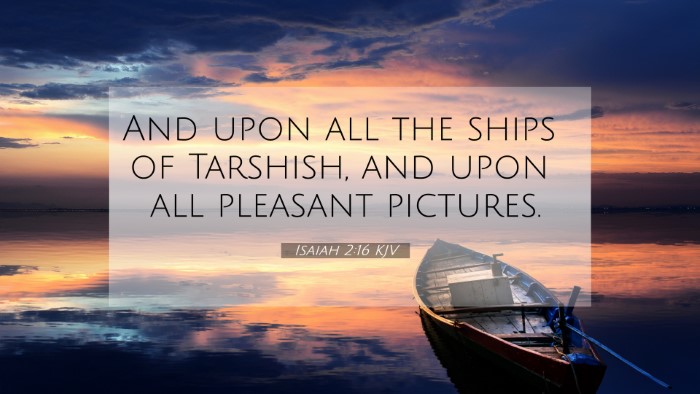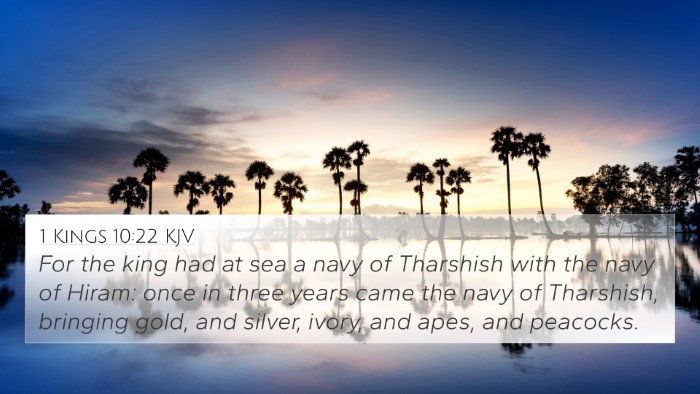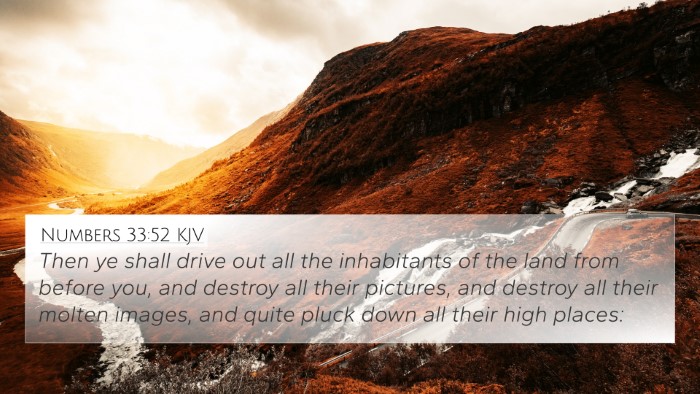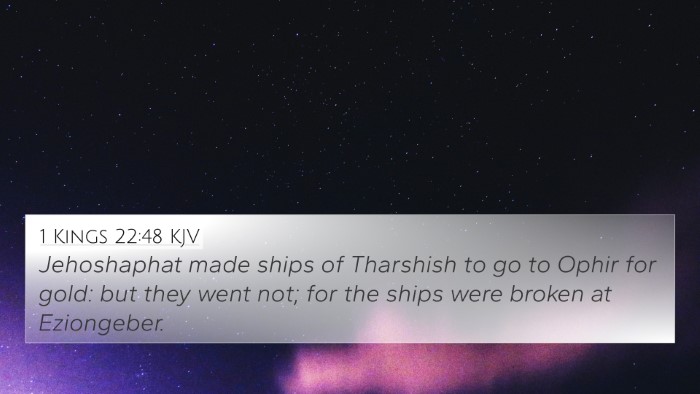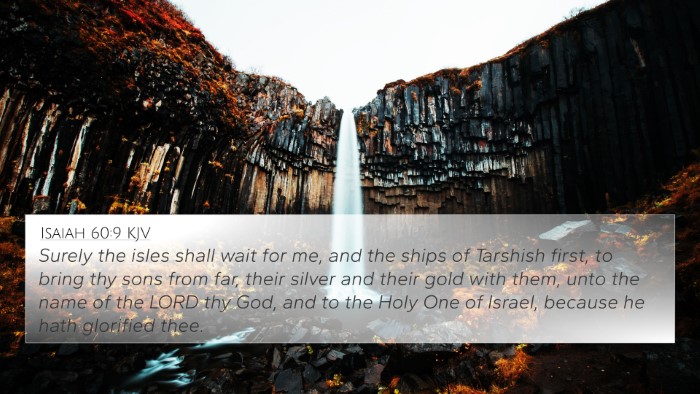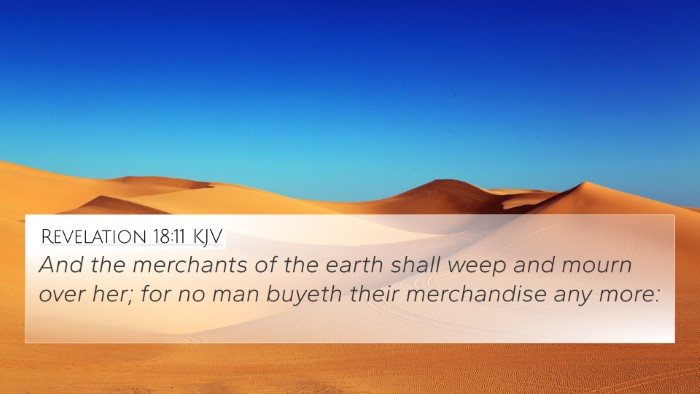Meaning and Interpretation of Isaiah 2:16
Bible Verse: Isaiah 2:16 - "And upon all the ships of Tarshish, and upon all pleasant pictures."
Overview
This verse forms part of Isaiah's prophetic visions that highlight the coming judgment upon the proud and the lofty. It points specifically to the maritime activities of the ancient world and serves as a metaphor for the broader context of God's impending judgment on worldly pride and idolatry.
Combined Insights from Public Domain Commentaries
The following insights combine perspectives from Matthew Henry, Albert Barnes, and Adam Clarke.
Matthew Henry's Commentary
Henry emphasizes the significance of the ships of Tarshish, which were known for their measureless trade and luxuriousness. He notes that these ships symbolize the pride and wealth that often leads people away from God. The mention of "pleasant pictures" refers to the idols and artworks that captivate the hearts of men, drawing them away from true worship.
Albert Barnes' Commentary
Barnes interprets this verse as a depiction of the fall of maritime powers. He suggests that the merchants, often considered the elite, would face consequences for their trust in material riches rather than in divine providence. He highlights the futility of placing faith in worldly possessions, likening the ships to spiritual poverty amidst material abundance.
Adam Clarke's Commentary
Clarke offers insight into the specific references to Tarshish, which was known for its far-reaching trade expeditions. He elucidates that this verse foreshadows a day when those who relied on their might and commerce would face destruction. Clarke also associates "pleasant pictures" with an emphasis on the transient beauty that ultimately leads to spiritual desolation.
Thematic Connections
This verse stands in rich thematic dialogue with various Biblical passages. Together, they explore the transient nature of human constructs compared to the eternal kingdom of God.
Cross-References for Isaiah 2:16
- Revelation 18:17-19: The lamentation over the fall of Babylon mirrors the destruction of proud vessels and wealth.
- Psalm 49:16-17: The message that wealth and possessions do not accompany one in death aligns with the warning in Isaiah.
- Ezekiel 27:25-26: The downfall of Tyre resembles the fate of Tarshish's ships, emphasizing a theme of divine judgment on commerce.
- James 1:10-11: A New Testament reflection on the briefness of wealth, akin to the fall of ships in stormy seas.
- 1 John 2:15-17: Calls for believers to avoid the lust of the flesh and pride of life resonate with Isaiah's themes of idolatry.
- Lamentations 3:19-20: The connection of sorrow over downfall pushes the reflection on what occurred due to reliance on worldly goods.
- Matthew 6:19-21: Jesus' teaching to store treasures in heaven instead of earth reflects the emptiness of material reliance.
- Ecclesiastes 1:9-10: The cyclical nature of human endeavors serves as a reminder that nothing new can give lasting fulfillment.
- Isaiah 2:12: This preceding verse offers context about the day of the Lord, broadening the understanding of Isaiah 2:16.
- Isaiah 13:1-5: References to the judgment upon Babylon, linking the themes of destruction and pride evident in Isaiah 2:16.
Significance of Cross-Referencing
Cross-referencing Biblical texts enhances our understanding of scripture, revealing deeper connections that inform our faith. The act of comparative Bible verse analysis encourages believers to explore inter-Biblical dialogue, uncovering the cohesive narrative of scripture.
Tools for Bible Cross-Referencing
Using a Bible concordance or a comprehensive cross-reference guide can aid in identifying connections between scripture. By employing tools for Bible cross-referencing, believers can deepen their study and understanding of God's word.
Conclusion
Isaiah 2:16 serves as a profound reminder of the transient nature of worldly power and possessions. The combined insights from Matthew Henry, Albert Barnes, and Adam Clarke highlight the verse's thematic significance of divine judgment against pride, wealth, and idolatry. Through cross-referencing this verse with others, readers can engage in a more extensive dialogue with scripture, understanding the recurring themes of dependence on God over worldly systems.


